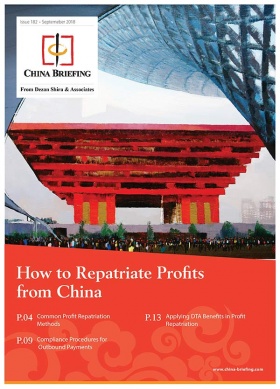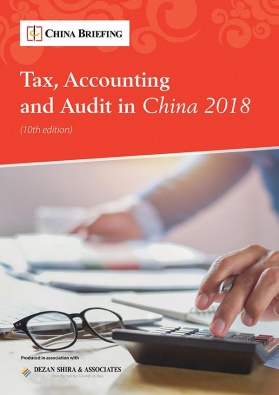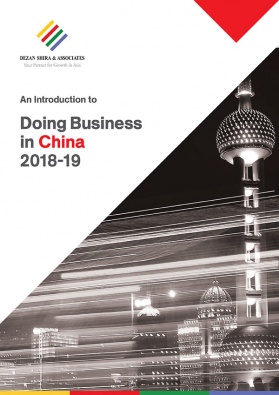China on Beneficial Ownership, Safe Harbor Rule: Claiming Tax Treaty Benefits
By Paul Dwyer, Director, Head of International Tax and Transfer Pricing
China’s State Administration of Taxation (SAT) released the long-awaited Public Notice [2018] No.9 (Public Notice 9) on February 3, 2018.
Public Notice 9 provides additional guidance on assessing the beneficial ownership status for the purpose of enjoying the treaty benefits under China’s tax treaties, including the China-Hong Kong Double Tax Agreement. Public Notice 9 will take effect from April 1, 2018.
Public Notice 9 introduces two favorable changes for claiming treaty benefits on dividends received from China. These are:
- Extending the scope of the safe harbor rule stipulated in the SAT Public Notice [2012] No.30 (Public Notice 30) such that it now does not only apply in respect of listed companies, but also governments and individuals; and
- Introducing the new same jurisdiction/same treaty benefit rule in respect of multi-tier holding structures.
Public Notice 9 has, however, tightened two of the seven unfavorable factors set out in Guoshuihan [2009] No.601 (Circular 601) for assessing beneficial ownership status.
The extended “safe harbor rule”
Public Notice 9 extends the scope of safe harbor rule in respect of dividend income such that the rule now applies to treaty benefit applicants, which are:
- A listed company, a government, or an individual who is a resident of tax treaty jurisdiction; or
- A company wholly owned directly or indirectly by such listed company, government, or individual.
The new “same jurisdiction rule”
Under the same jurisdiction rule, any intermediate shareholder(s) in a multi-tier holding structure need not be a Hong Kong tax resident if:
- The shareholder directly or indirectly holding 100 percent equity interest of the Hong Kong applicant qualifies as a Beneficial Owner (BO) upon assessment based on the five unfavorable factors of Public Notice 9; and
- Both the shareholder and the Hong Kong applicant are tax residents of Hong Kong, the Hong Kong applicant will be treated as the BO of the dividends.
The new “same treaty benefit rule”
Hong Kong applicants will be treated as the BO of the dividends if:
- The shareholder directly or indirectly holding 100 percent equity interest of the Hong Kong applicant qualifies as a BO upon assessment based on the five unfavorable factors in Public Notice 9; and
- Such shareholder and all the intermediate shareholder(s) (if any) in the multi-tier holding structure of the Hong Kong applicant are residents of a tax treaty jurisdiction that enjoys the same or better treaty benefit with respect to the dividends received from China as compared to that is entitled by the Hong Kong applicant.
Public Notice 9 also specifies that the shareholding percentage in the safe harbor rule and the above two scenarios shall be met at all times during the 12 consecutive months before dividends are received, which reflects the shareholding continuity requirements.
Changes to the unfavorable factors for BO assessment
Public Notice 9 makes some amendments to the seven unfavorable factors in Circular 601. This has been done by tightening the first and second factors, deleting the third and fourth factors, and retaining factors five to seven.
The amendment to the first unfavorable factor indicates that the SAT will not only consider the legal or contractual payment obligation, but also examine whether any payment is carried out based on the factual circumstances.
According to the interpretation notes of Public Notice 9, even if the applicant has not made any cash payment, certain inter-company transactions such as netting off of inter-company payable/receivable or other genuine commercial arrangements (e.g. providing a loan to a group company after receiving the income from China) may be considered as a payment made that may affect the BO status of the applicant.
As for the second unfavorable factor, the interpretation notes of Public Notice 9 provide (1) further guidance on what investment and management activities are; and (2) a few examples to illustrate the SAT’s view on substantive business activities.
For the situation where an applicant carries out both non-substantive investment/management activities and other business activities, the explanatory notes indicate that where the income generated from the other business activities by the applicant is less than 8 percent of its total income, the other business activities are regarded as insignificant.
Tax residency certificate requirement
Public Notice 9 also specifies the tax residency certificate (TRC) requirements for treaty benefits claims in the following circumstances:
- Under the extended safe harbor rule, the treaty applicant (i.e. the Hong Kong applicant) as well as the ultimate and intermediate 100 percent shareholders of the Hong Kong applicant need to provide a Hong Kong TRC;
- Under the same jurisdiction rule, both the treaty benefit applicant (i.e. the Hong Kong applicant) and the 100 percent shareholder of the Hong Kong applicant that qualifies as BO need to obtain a Hong Kong TRC; and
- Under the same treaty benefit rule, the treaty benefit applicant (i.e. the Hong Kong applicant), the 100 percent shareholder of the Hong Kong applicant that qualifies as a BO and all the intermediate 100 percent shareholders (if any) need to obtain a TRC for the relevant tax treaty jurisdictions.
The TRC must show the residence status for the year in which the income was received or for the previous year.
Favorable changes
Companies investing through a holding company located in a jurisdiction that holds a treaty agreement with China should review whether the extended safe harbor rule or the same jurisdiction/same treaty benefit rule in Public Notice 9 allow them enjoy treaty benefits.
This includes Hong Kong-based holding companies, which may be able to benefit from the dividends article of the China-Hong Kong Double Tax Agreement depending on their existing investment/business structure.
One the other hand, it is critical to note that the Public Notice 9 makes it clear that even if an applicant is a BO, the Chinese tax authorities can still initiate a GAAR investigation to deny treaty benefits, based on a Main Purpose Test or Principle Purpose Test under some tax treaties.
It is therefore advisable to review the existing investment holding structure to avoid any potential tax challenges.
About Us
China Briefing is produced by Dezan Shira & Associates. The firm assists foreign investors throughout Asia and maintains offices in China, Hong Kong, Indonesia, Singapore, Russia, and Vietnam. Please contact info@dezshira.com or visit our website at www.dezshira.com.
- Previous Article Structuring a Salary Package in China
- Next Article China’s Cybersecurity Law: An Introduction for Foreign Businesspeople








